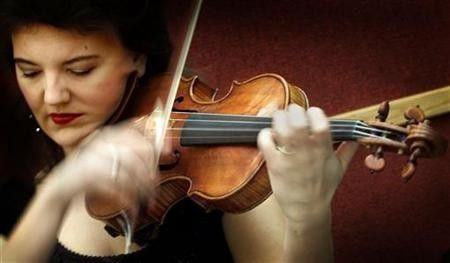Musical Training Enhances Long-Term Memory

Heekyeong Park, assistant professor of psychology at the University of Texas at Arlington, and graduate student James Schaeffer examined the brains of professional musicians to determine the link between musical expertise and cognitive ability.
Musically trained people are known to outperform non-musicians at verbal processing. They have superb memory for the songs or pieces they play. Previous studies also proved that musicians have advantages in short-term or working memory. However, the research team wants to find out whether there are differences in neural responses between pictorial and verbal tasks and whether any advantages extend to long-term memory. Park says, "If proven, those advantages could represent an intervention option to explore for people with cognitive challenges."
Twenty-nine participants were selected for the study; 14 musicians and 15 non-musicians. All the musicians have been playing classical music for more than 15 years. High-tech imaging tools including EEG, functional magnetic resonance imaging (fMRI) and functional near-infrared spectroscopy (fNIRS) were used in the study to measure electrical activity of neurons in the brains of the subjects. Processing differences in the frontal and parietal lobe responses were noted.
To test short-term memory, the study participants were asked to choose graphic or verbal items from the given. For long-term memory, participants assessed whether each test item was studied or new after the entire study session was complete.
In the EEG-measured neural responses on the short-term memory tasks, the musicians performed better than the non-musicians. However, when long-term memory was tested, the enhanced sensitivity was only detected in memory for graphic items.
Based on the initial results, Park concludes that professional musicians are proficient at memorising and processing a lot of graphic cues as they navigate musical scores. However, the study does not have added explanation as to why these long-term memory advantages have developed.
The psychologists will discuss details of their latest research on Tuesday at Neuroscience 2014, the international meeting of the Society for Neuroscience, in Washington, D.C. They plan to do more studies on this to strengthen their conclusion.
The research was successful because it was able to demonstrate how modern medical equipment can be used to learn more about human cognition. It also adds evidence to support the theory that arts training, particularly in music, can be used to improve mental skills.




















